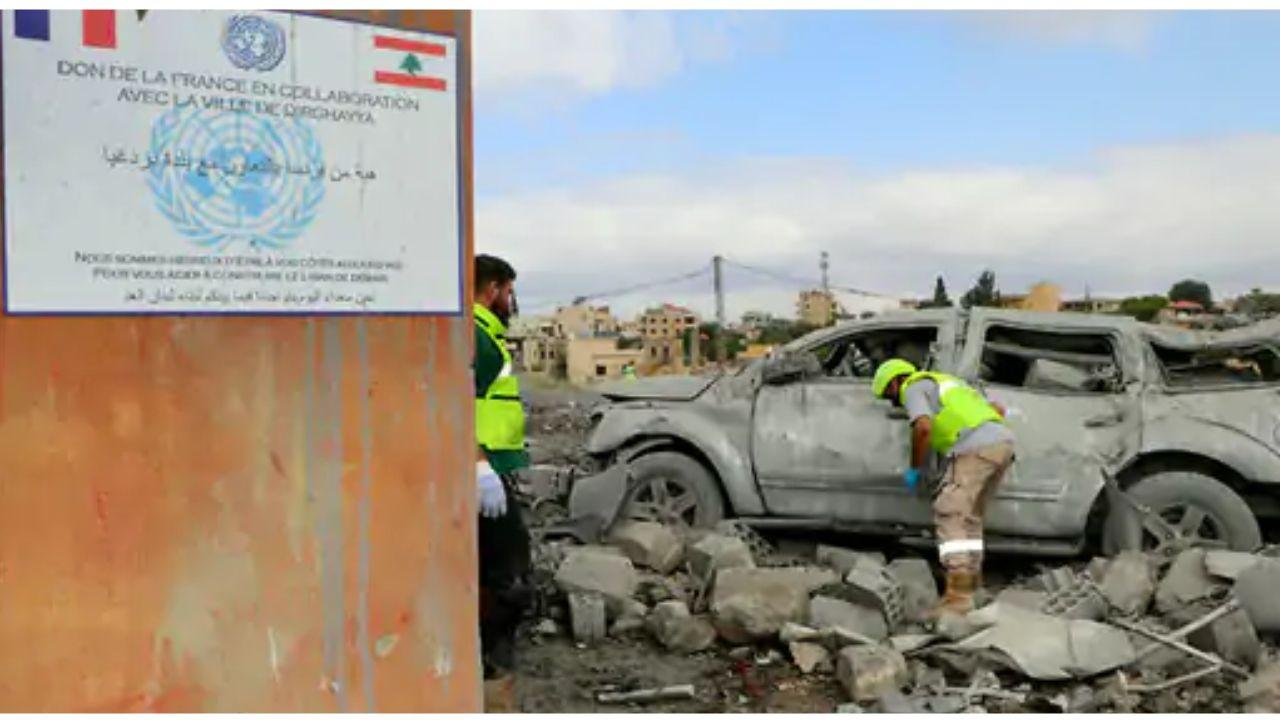

India raises concerns over Israeli attacks on UN posts in Lebanon amid deteriorating security situation
PTC Web Desk: Israel has launched attacks on United Nations (UN) posts in Lebanon, with Israeli tanks targeting a UN base on Thursday, resulting in injuries to two members of the UN peacekeeping force. Amid deteriorating security situation, India has expressed significant concern, as a UN peacekeeping mission has established a Blue Line along the Israel-Lebanon border, where approximately 600 Indian troops are currently deployed.
The Indian Ministry of External Affairs on Friday said it was closely monitoring the deteriorating security situation along the Blue Line. It highlighted the need to respect the integrity of UN premises and take necessary measures to ensure their safety.
Following the attack on the UN peacekeeping mission, several countries, including Italy, France, and Indonesia, have called for accountability from Israel. Israel's Ambassador to India, Reuven Azar, claimed that Hezbollah is using the cover of UN posts to launch attacks on Israel, assuring that necessary precautions will be taken to safeguard UN personnel.
Notably, two types of peacekeepers are stationed along the Israel-Lebanon border: the United Nations Interim Force in Lebanon (UNIFIL) and the United Nations Disengagement Observer Force. Israel had initiated a ground incursion into Lebanon on October 1 and subsequently requested UN peacekeepers to withdraw from southern Lebanon, a request the UN rejected.
The UN has accused Israel of repeatedly targeting its bases over the past 24 hours, asserting that Israeli soldiers deliberately fired upon cameras and lights at two UNIFIL posts. In response, the Israeli military stated that warnings were issued for UN peacekeeping members to relocate to safety prior to the tank attacks.
On the same day, Israeli forces conducted airstrikes on a building in Beirut, Lebanon, resulting in the deaths of 22 persons and injuries to 177 others, according to the Lebanese health ministry. The Israeli government has yet to release a statement regarding these attacks.
Reports from The Times of Israel indicate that the strikes targeted Waafiq Safa, a senior member of Hezbollah and head of its Coordination Unit, although he managed to escape during the assault. This airstrike has been described as the most significant operation conducted by Israel in Central Beirut to date.
Amid rising tensions, Gulf nations, including Saudi Arabia, Qatar, and the UAE, are exerting pressure on the United States to prevent Israeli attacks on Iranian oil facilities. These countries have indicated that they will not allow Israel to use their airspace for strikes against Iran.
Israeli Prime Minister Benjamin Netanyahu held a meeting with the country’s security cabinet on Thursday, which, according to CNN, was aimed at finalising plans for a potential attack on Iran. Prior to this meeting, Netanyahu had a phone conversation with US President Joe Biden on October 9, during which Biden reaffirmed Israel's right to self-defense. However, he also advised against targeting Iranian oil and nuclear sites, emphasising the need for restraint.
- With inputs from agencies
